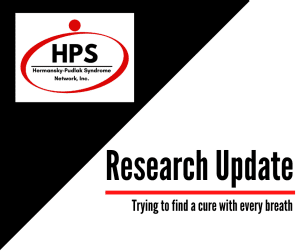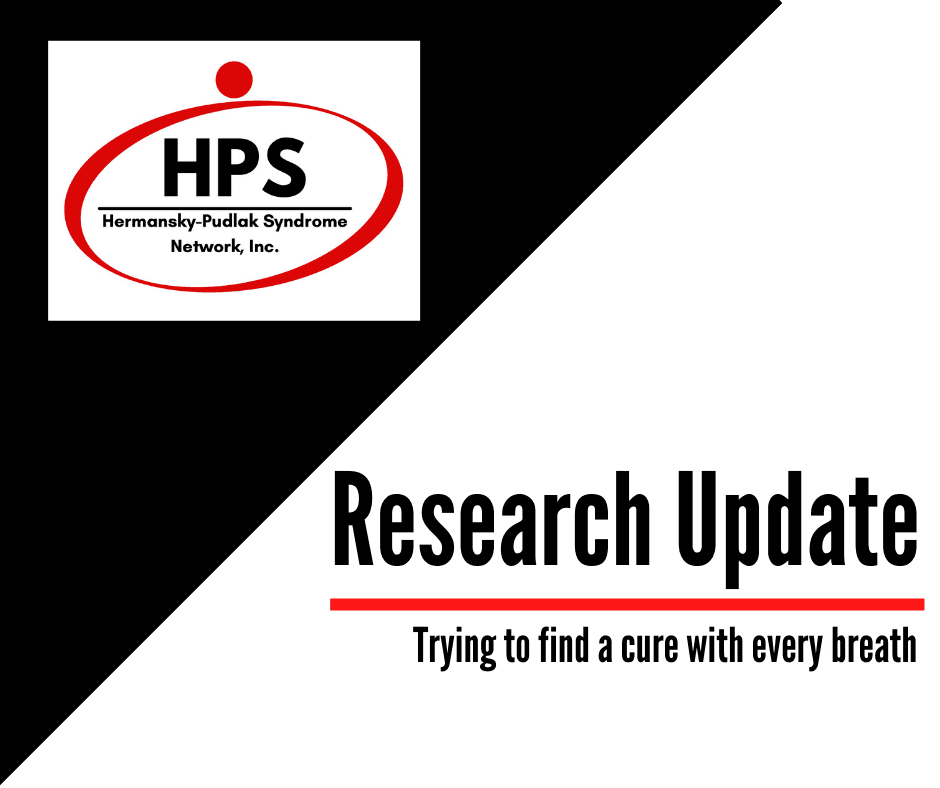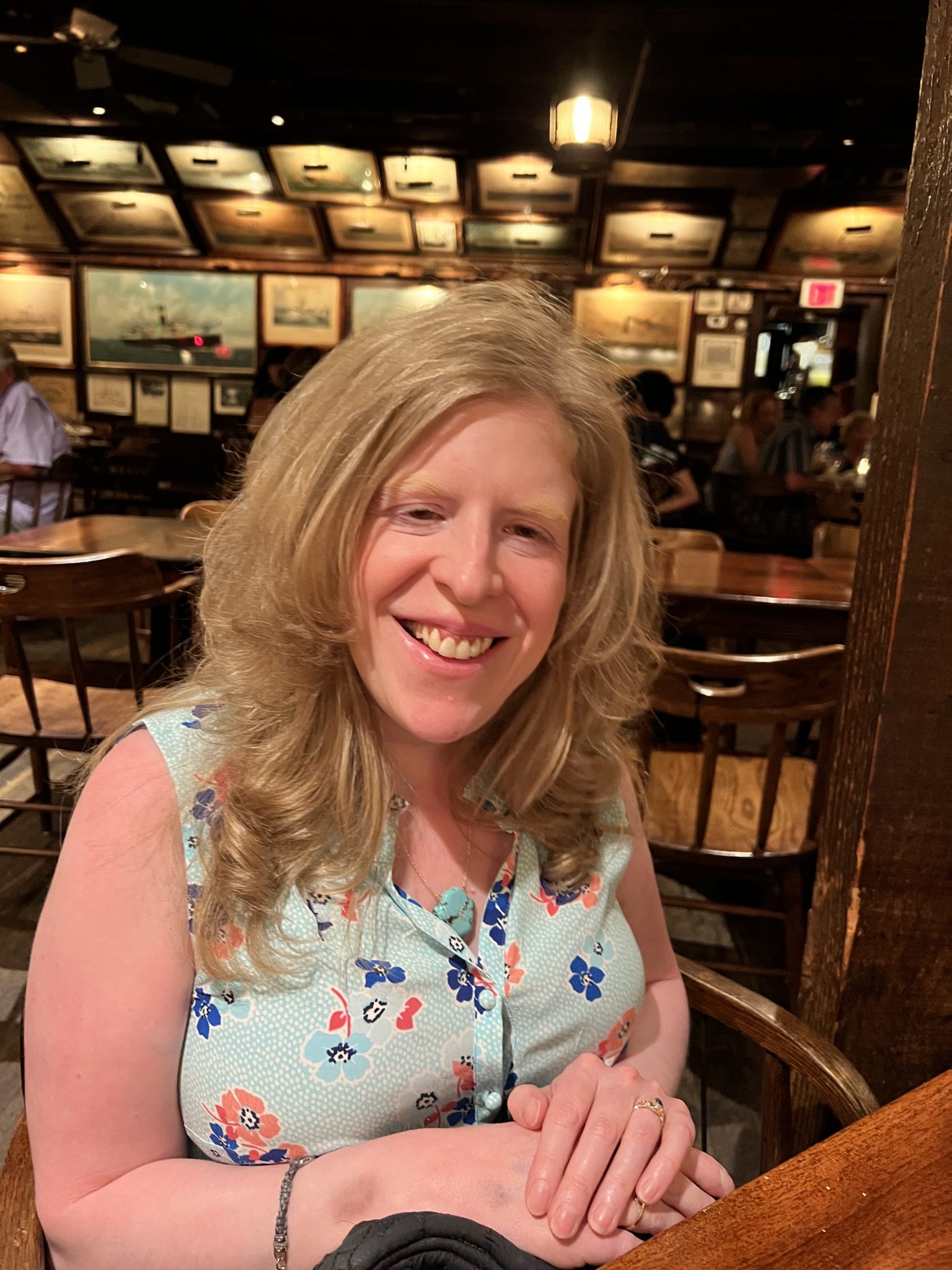Join Our Team of Advocates
Did you know the HPS Network advocates for federal research funding? Rick Bowman has been championing this cause for us and he needs your help.
We’re gathering a team of advocates to help secure federal resources for Hermansky-Pudlak Syndrome research. The HPS Network will help you advocate and prepare each of you to meet with your members of Congress over the next 6-9 months. The first step is gathering the contact information for our team and building our #StrengthInNumbers!
If you are interested and able to meet with your members of Congress either virtually or in person, please send us your Name, phone#, email address and physical address to info@hpsnetwork.org so that we can add you to the team and Rick can get you connected with the appropriate member of Congress.
2023 Lung Disease Week at the ATS
The American Thoracic Society (ATS) Public Advisory Roundtable (PAR) is hosting its eleventh annual “Lung Disease Week at the ATS” series this year. This is a society-wide initiative that recognizes the many lung and airway disorders for which ATS PAR member organizations provide support and guidance to patients and their families. As part of this program and in conjunction with the HPS Network and the LAM Foundation, the ATS will be presenting a live patient education webinar on Wednesday, November 8th at 1pm – 2pm ET. The topic of the webinar is “Practical Aspects of Vaccination”, and the featured panelists are Justin R. Ortiz, MD, MS professor of medicine at University of Maryland School of Medicine and Kimberly A. Fisher, MD associate professor at UMass Chan Medical School. Other discussants are Donna Appell, RN, executive director of the HPS Network and Susan Sherman, CEO of the LAM Foundation. The overall discussion will focus on the development path of novel vaccines and how they make the transition from a laboratory to clinical trials. Also discussed will be the role that patients, families and patient advocacy groups may play in promoting public confidence in vaccine development, education, and benefits.
Registration for this Zoom Event is necessary. Here is the link to register: https://thoracic.zoom.us/
2024 Mother’s Workshop
Mothers!! Join us for our annual Mothers’ Workshop with Sheila Adamo, LCSW, CADC
This year we are offering two workshops! These workshops provide an opportunity for mothers of children with HPS to connect, learn and empower one another. Participants will have an opportunity to process the many emotions that come along with having a child with HPS while continuing to build a community of supportive, wonderful mothers that will be part of your team.
Sunday, February 25th, 2024 from 4pm to 6pm ET
Sunday, October 20th, 2024 from 4pm to 6pm ET
Registration is required for these events.
2023 ATS Patients & Experts Forum
The American Thoracic Society is holding it’s annual conference in Washington DC this year. On Saturday, May 20th is a FREE Patient/Family education day event. This year’s talks will focus on providing pulmonary healthcare access for all.
The details for the event are in the flyer attached below. If you are interested in attending this IN-PERSON event, please RSVP by email to: events@hpsnetwork.org.
*You must be registered to attend, and space is limited.*
The Network will cover your parking and the ATS will provide lunch, please help us fill the room for Dr. Gochuico!!
Clinical Trial Readiness Webinar
On Thursday, November 10th, the American Thoracic Society (ATS) presented as part of the “Lung Disease Week at the ATS” initiative – a program designed to facilitate information exchange between patients and experts on matters relating to lung and airway disorders. This roundtable discussion was a collaborative effort between the ATS Public Advisory Roundtable (PAR), the TSC Alliance and the HPS Network.
The panel included experts Elizabeth Henske, MD, the Director of the Center for LAM Research and Clinical Care at Brigham and Women’s Hospital and Jesse Roman, MD the CEO of Jane & Leonard Korman Respiratory Institute and Professor of Medicine at Thomas Jefferson University. Other discussants were Kari Rosbeck, the President and Chief Executive Officer of the TSC Alliance and Donna Appell, the Founder and Executive Director of the HPS Network.
The webinar can be viewed on the American Thoracic Society’s website: Link to Clinical Trial Readiness Webinar
Oral Pirfenidone for the Pulmonary Fibrosis of HPS

This original trial involved 21 participants and showed that the drug was somewhat helpful in slowing the development of pulmonary fibrosis. It seemed to help most when given early in the development of fibrosis: Study Details
The second study of Pirfenidone conducted by the National Institutes of Health was ended early due to a statistical issue in its construction. It was not because the drug was, or was not found to be helpful. It also offered further evidence of the safety of the drug and possible side effects: Study Details
A Longitudinal Study of HPS Pulmonary Fibrosis
This study looked at those at high risk for developing pulmonary fibrosis to detect early disease. The aim was to try to identify biomarkers that could help those in the future get treatment sooner.

2023 Mother’s Workshop
Mothers!! Join us for our annual Mothers’ Workshop with Sheila Adamo, LCSW, CADC
This workshop provides an opportunity for mothers of children with HPS to connect, learn and empower one another. Participants will have an opportunity to process the many emotions that come along with having a child with HPS while continuing to build a community of supportive, wonderful mothers that will be part of your team.
Sunday, January 29th, from 5pm to 7:30pm ET
Registration is required for this event:
HPS Story featured on The Story Collider
If you would like to listen to the show, follow this link: Story Collider
Rare Disease Workgroup Appointment
Ashley Appell has been appointed to New York’s Rare Disease Workgroup.
Ashley was selected to serve as a patient advocate. She will express patient concerns and goals to the workshop group. The group will then advise New York Assembly representatives regarding public policies that touch patients and families impacted by rare diseases. The group is also comprised of other stakeholders including caregivers and providers. Appell will serve through 2024.





